Phonics is an essential component of early literacy education as it provides a foundation for students to develop strong reading abilities. Through phonics instruction, students can learn to break down words into their individual sounds, making it easier for them to recognize and pronounce words accurately. This systematic approach to reading instruction helps students build their phonemic awareness, which is crucial for developing fluency and comprehension skills.
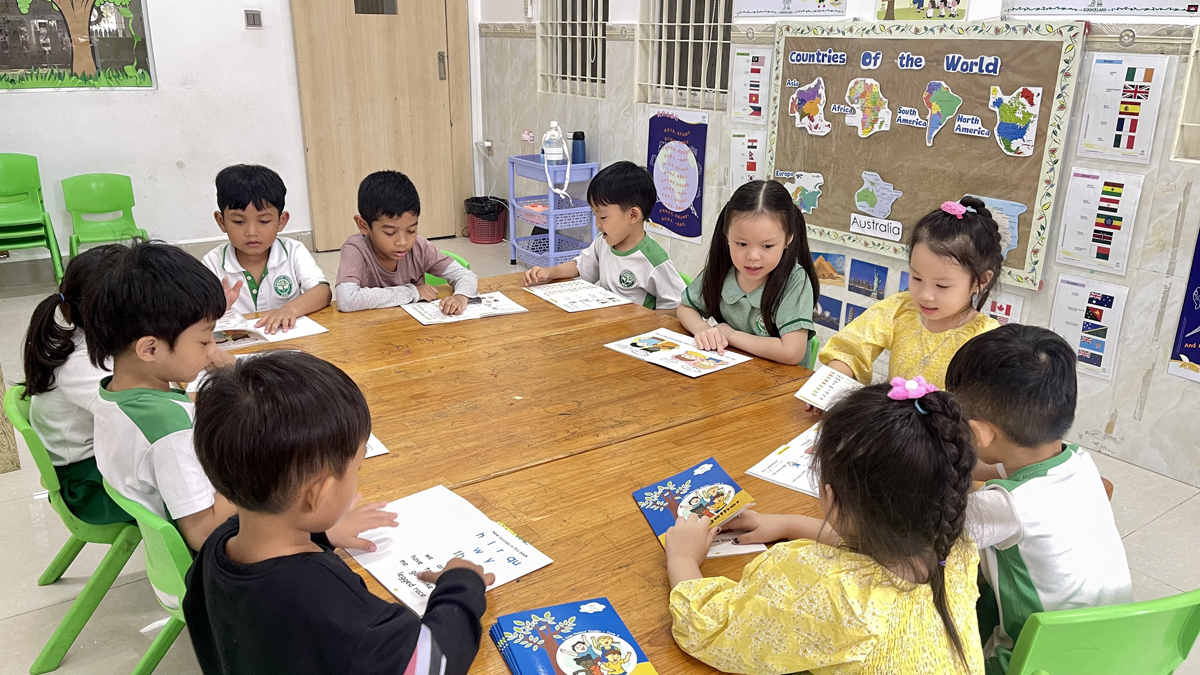
With the ability to read, the fascinating world of wonders opens new learning opportunities for children.
Here in Kinderland International Preschool @ Cambodia, we learn through various methods, such as using phonics workbooks, flashcards, and interactive online resources. Teachers often incorporate games, songs, and hands-on activities to make the learning experience engaging and enjoyable for students. By providing explicit and systematic phonics instruction, educators equip children with the necessary skills to become independent readers and confident communicators. Learning phonics is an essential foundation for literacy development and sets the stage for future academic success.
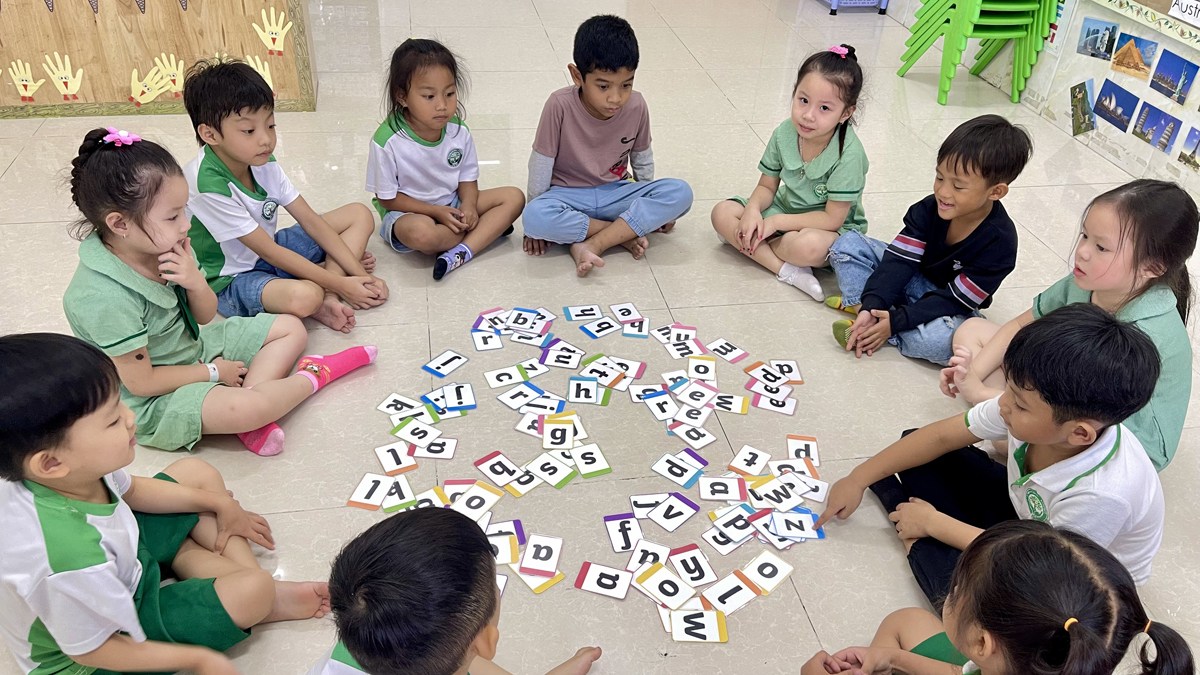
We are ready to decode words!
Phonics instruction can also be beneficial for students who are learning English as a second language. By understanding the relationship between sounds and letters, English language learners can improve their pronunciation, spelling and overall language skills. Phonics provides a structured and systematic approach to learning English that can help students build a strong foundation for language acquisition.
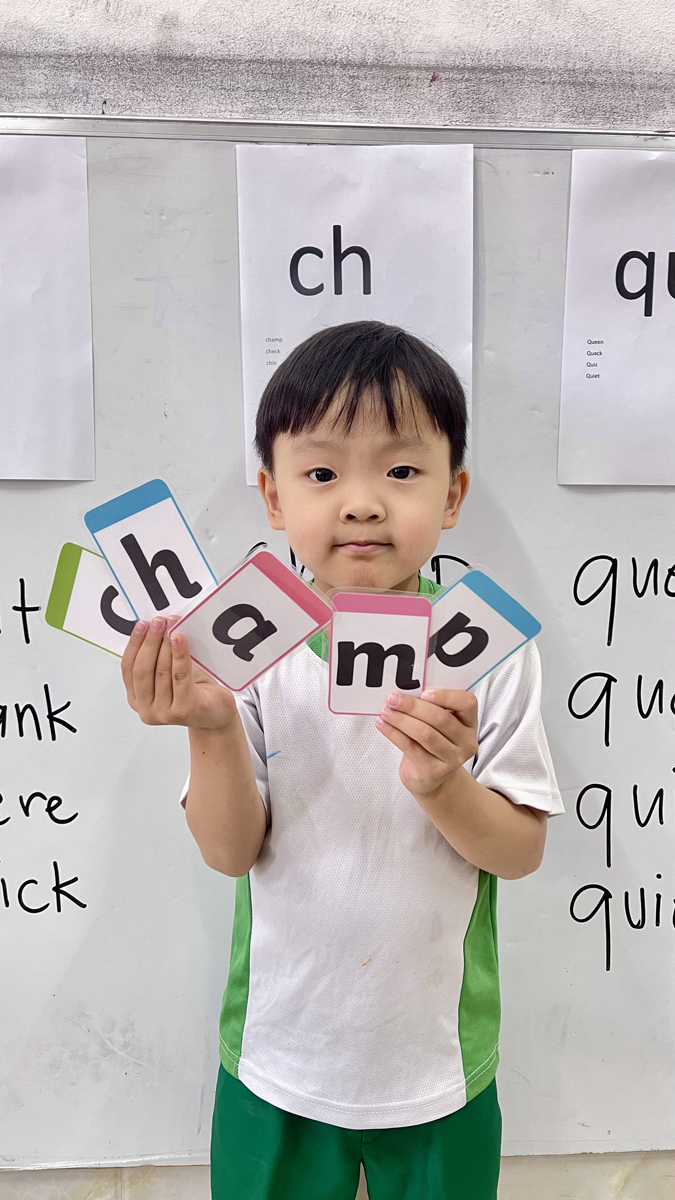
Our children are working on “Ch” sound unlock and blended
In addition to improving reading and writing skills, phonics instruction can also enhance student’s listening and speaking abilities. By focusing on the sounds of language, students can become more aware of the nuances of pronunciation and develop better communication skills and can help students become more confident and effective communicators in both academic and social settings.
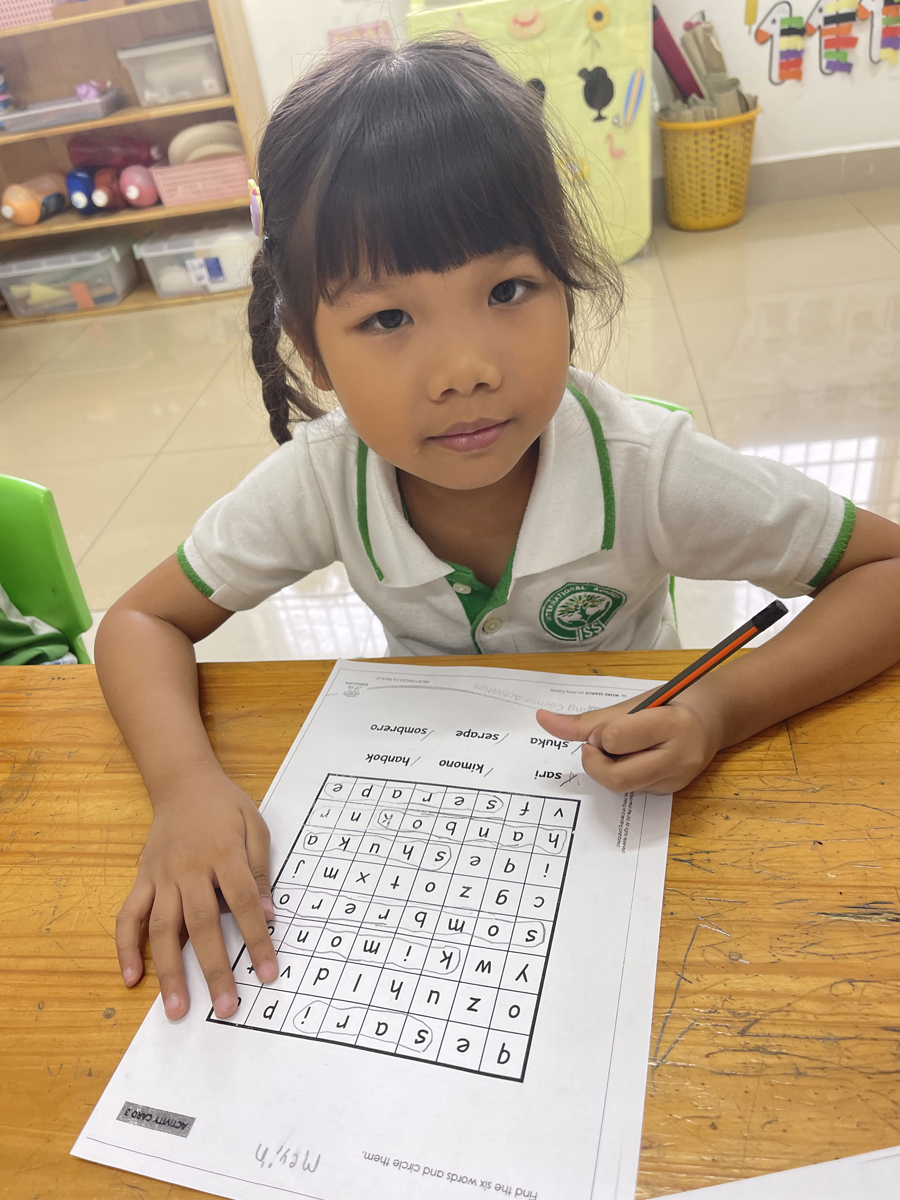
Let us sharpen our memory and thinking skills through cross word puzzle
At Kinderland we engage in phonics activities, such as word games, reading exercises and phonics worksheets. It makes our learning process more interactive and enjoyable. Practicing phonics regularly can help reinforce phonemic awareness and improve fluency in reading and writing.
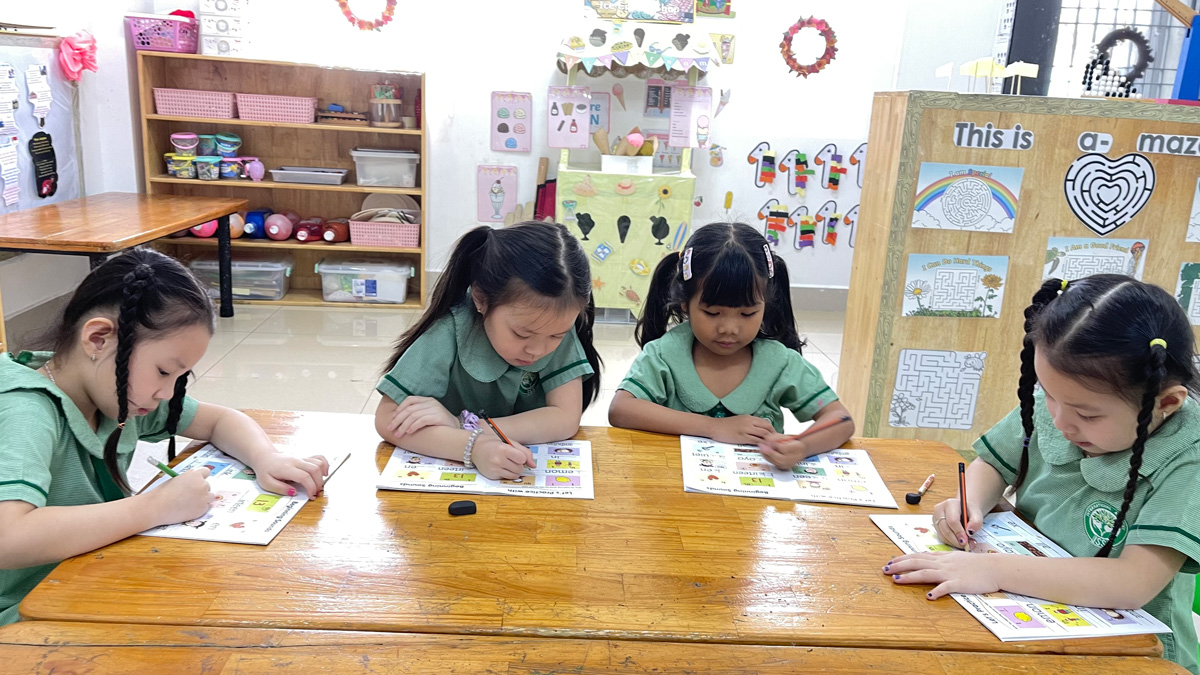
Children practice writing with beginning sound.
Overall, learning phonics at Kinderland International Preschool is an essential step in developing strong literacy skills that are crucial for academic success and by providing a systematic and structured approach to learning language, Phonics instruction is an essential tool for educators to help students become proficient readers, writers and communicators.